As I hesitated at the sight of the long queue snaking away from the doors of Deakin Edge in Melbourne’s Federation Square yesterday, I heard a man say; ‘Tariq Ali would expect us to queue wouldn’t he?’ I thought he’d be more likely to think the opposite and then I did what I’d would never have done in my youth, queue- jumped, or queue side-saddled really into the already quickly-moving queue. I was at the Melbourne Writers Festival and a little civil disobedience seemed appropriate on behalf of Tariq Ali, a controversial and prolific, writer, filmmaker and journalist.
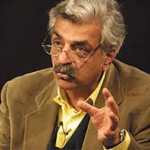
He is an English-Pakistani political commentator and a leading figure of the international left (or what’s left of it) since the 1960s. Ali is critical of US and Israeli foreign policies, and holds the view that the Iraqi government will fail. His books include The Duel: Pakistan on the Flightpath of American Power, The Obama Syndrome and The Extreme Centre: A Warning which I’d just finished. It’s an excoriating attack on neo-liberal governments around the world.
It was ironic to say the least that only a couple of hours earlier and just across the road from here at Federation Square there had been a spontaneous and angry demonstration, a social-media inspired resistance to a seeming over-reach of government power. Earlier in the day there had been a media release from the recently- formed, hairy-chested and expensively-uniformed paramilitary Australian Border Force, together with the Victorian police that they would be launching ‘Operation Fortitude’ to randomly check the visas of people in the streets of Melbourne. Was this Stalinist Russia I’d somehow time-warped into? After an angry demonstration outside Flinders St station, the ‘operation’ somehow was cancelled.
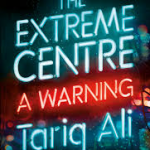
Tariq Ali’s address was suitably entitled ‘Twighlight of Democracy’ and for the next fifty minutes he analysed for his listeners what has been occurring in world governments since the collapse of the Berlin Wall. At the time of that momentous event he said that even President Bush senior had forecast a ‘peace dividend’ and the hope was that ‘governments would now spend money on the things that matter to people.’ Instead, he explained, we appear to have been ‘sleepwalking from one disaster to another’ ever since. Tariq points out that ‘the wars since then have lasted longer than the wars of the twentieth century. The new collective experience has been debt, semi- employment, widespread homelessness and wholesale sale of public assets.’ The 2008 Wall Street crash demonstrated the flaws of this capital -before – people approach. The neo-liberal tactic under Thatcher and Reagan, and then imitated by their successors, was to create a society where the needs of the public were secondary to capital. Real transfers of wealth were successfully achieved from the poor to the already rich.
Tariq says that we fell into an ‘ideological and historical amnesia, backed up by a decline in the quality of the media and the removal of divergent views, fostered by factory-farmed politicians.’ His analysis was already starting to feel familiar and local. The ‘tabloidisation and trivialisation’ of our media according to Tariq is not accidental. The neo-liberal ideology helped create and support a neo-liberal economic structure. This Tariq believes was the beginning of the ‘twilight of democracy.’
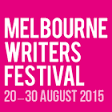
This situation, he says, partly explains too the hostility towards migration, where new migrants are seen as stealing jobs and working for less. The hostility, Tariq observes, occurs where people fail to link migration to their own historical past – another type of amnesia. Tariq also noted ‘the strong symbiosis between money and politics in these neo-liberal societies’.
I’d have to agree that our own political processes in Australia have been pretty much corrupted on both sides by money. Corruption and misuse of what actually should be spent on basic needs such as education and health, has reached epidemic proportions recently. Tariq underlined the influence of money in politics with a story about the EU after crushing Greece with its austerity plan, followed up with sixteen Greek airports quickly being snapped up by German buyers.
In The Extreme Centre: a Warning Tariq spends a lot of time analysing how the structure of the European Union became ‘a Bankers’ Europe, with little regard for anything but the needs of finance capital.’ This puts into context how smaller nations like Greece were always going to be disadvantaged by stronger nations such as Germany with their powerful banks.
Politics now, according to Tariq, operates from this extreme Centre and he believes that there are two conditions that help these governments thrive – wars abroad and finding enemies. The Abbott government’s recent mumblings about ‘moral’ obligations to bomb Syria came to mind. I wondered though if the Abbott government would turn back the boats of Syrians fleeing the bombing by the Abbott government.
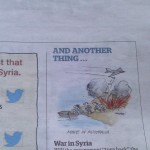
Towards the end of his address Tariq made the point that the things currently being said against Islamic people are not unlike those said against the Jews in the 1930s and 1940s. It was a reflection I had not heard expressed before.
There are signs,Tariq thinks, that there is however real resistance to this neo-liberal ideology and sighted movements in Scotland, the possible new Labour leader in England and grassroots movements in Spain. I was reminded of an ABC Foreign Correspondent program this week which told the story of a group of young 2011 protesters (known as the 15M) who have recently been elected onto the city councils of Madrid and Barcelona.
Despite these stories of grassroots resistance to neo-liberal ideology, Tariq ended his address with the cautionary remark that ‘talk of civilisation may be a bit premature.’ He also quoted Gandhi who, when asked what he thought of western civilisation, said: ‘it would be a good idea’.

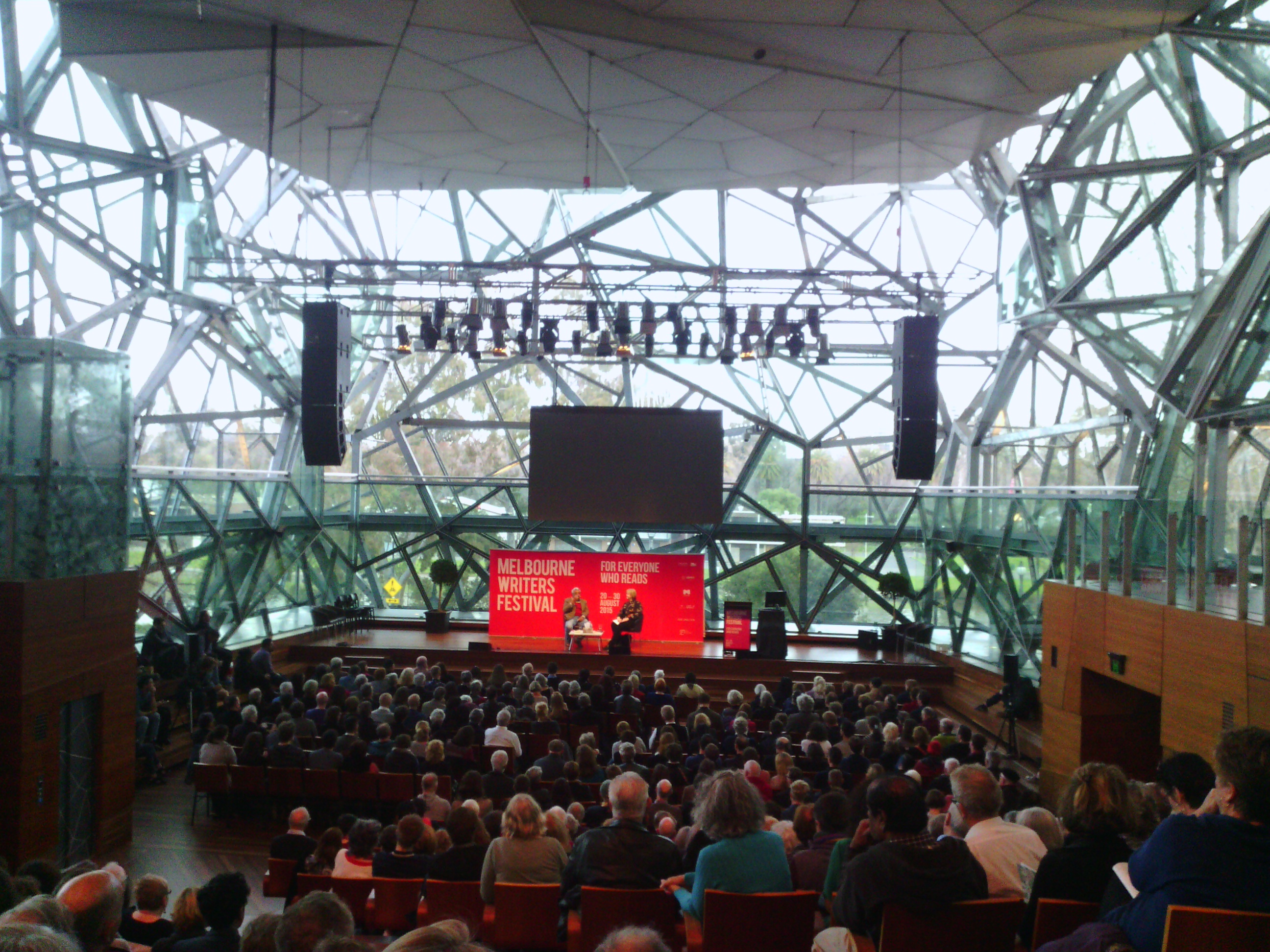
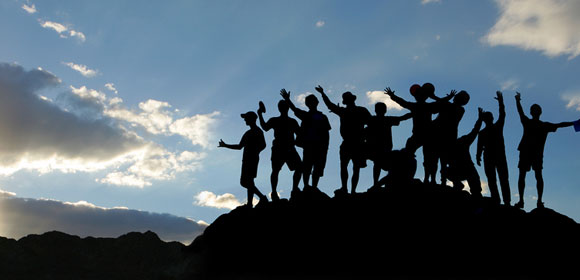

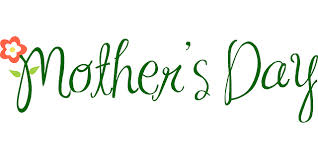
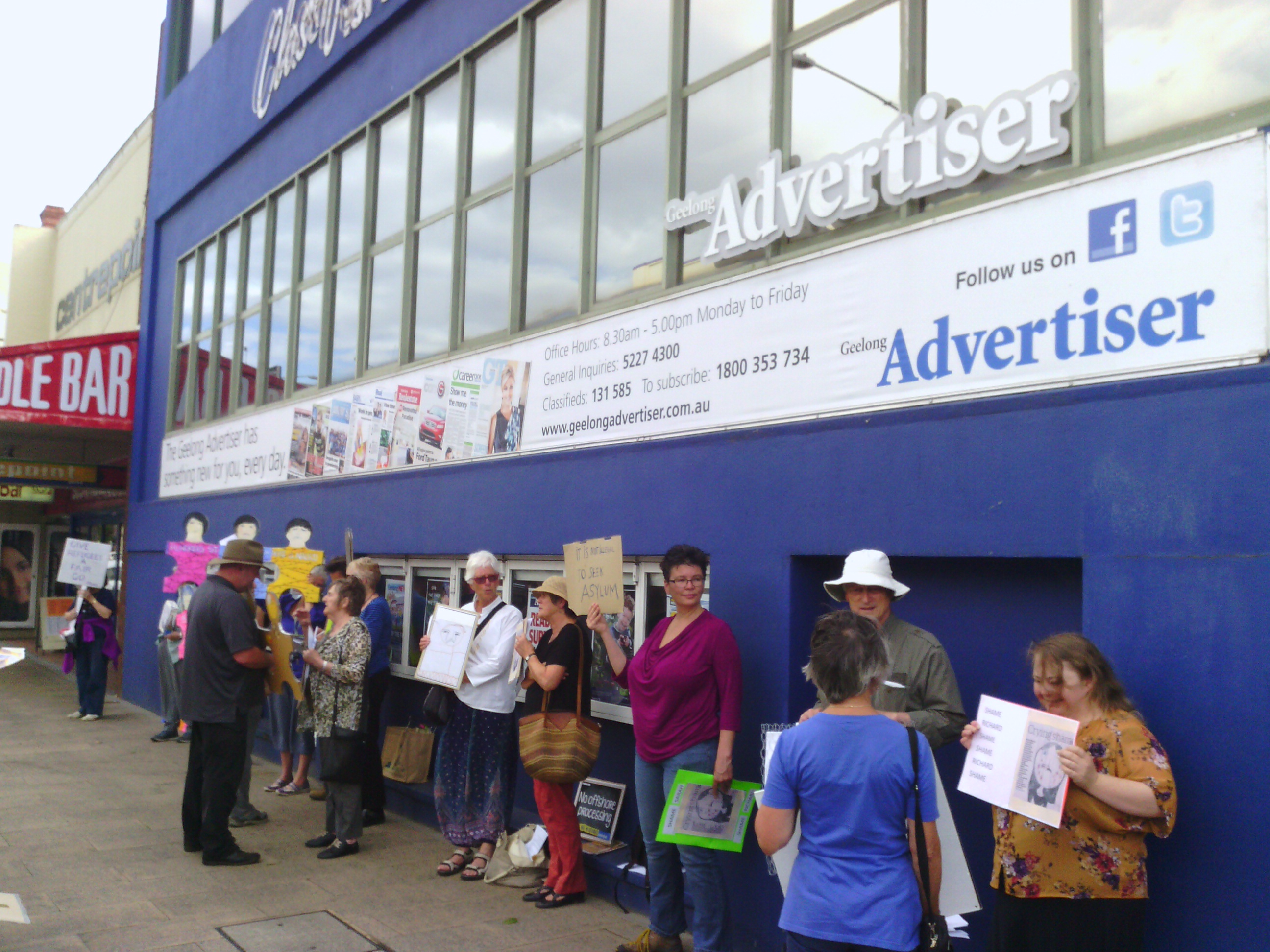
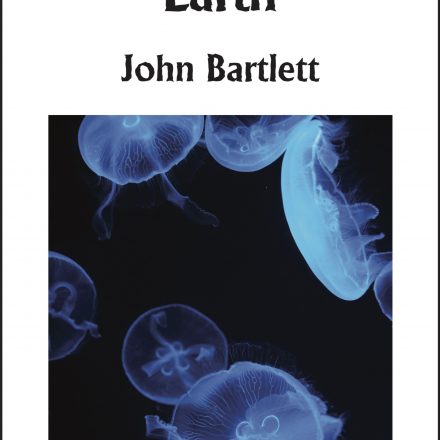
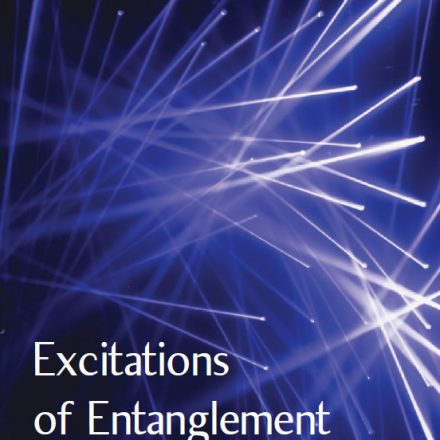
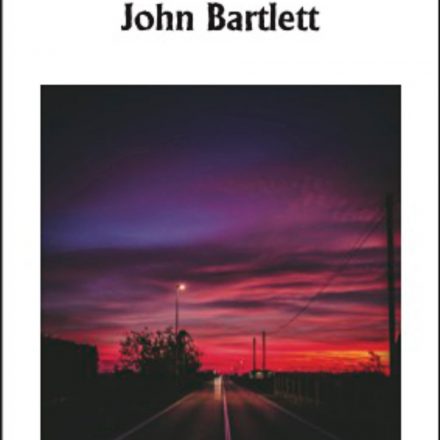
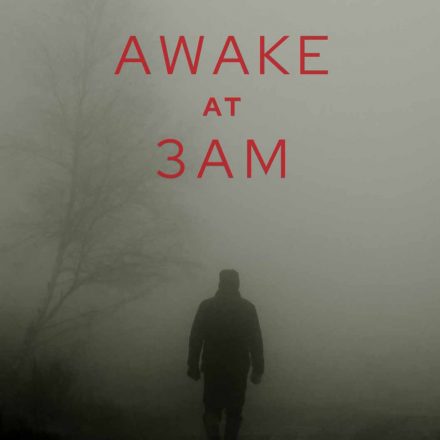
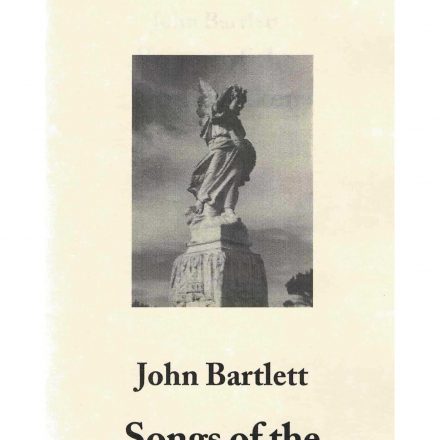

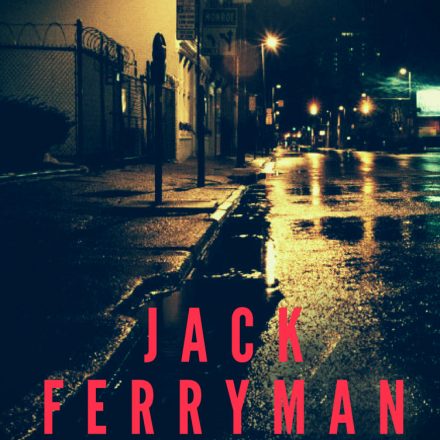
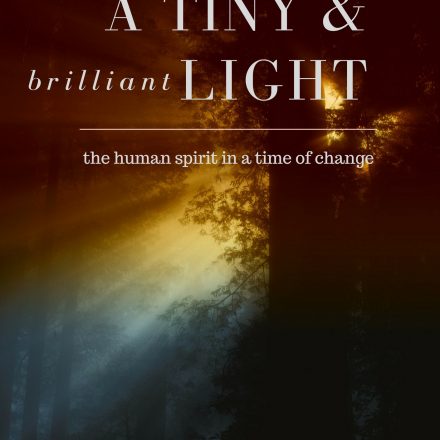
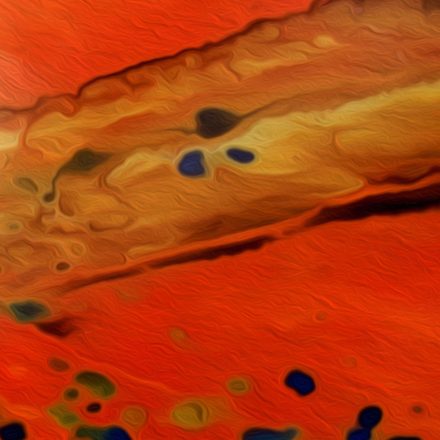
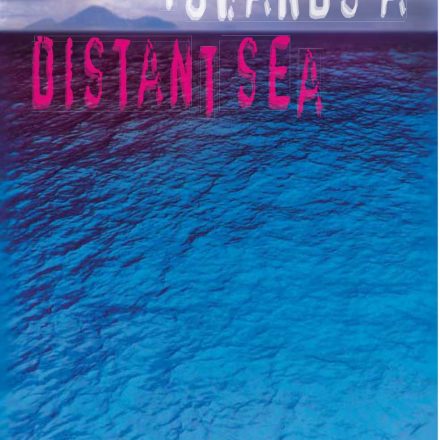

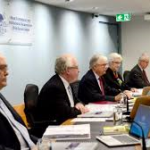
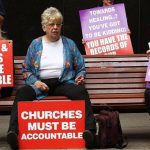
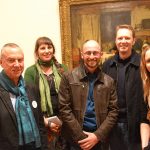



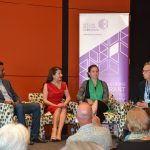

Actually John, it is both – the twilight of democracy and the twilight of fortitude. Tariq Ali has more than adequately described what the twilight of democracy looks like, to which we can add the apparent intent of the (happily abandoned) Operation Fortitude on the streets of Australia’s most culturally diverse city. The twilight of fortitude is the risk of losing strength to continue fighting through the twilight of democracy.
Democracy is hard work. The citizens and a genuinely free press have to maintain their crucial role of limiting the immense power of the macro-corporate sector and the larger trade unions, both of which have much greater resources of finance, personnel and infrastructure than the small and microeconomic sector comprising small businesses, the self-employed, and the majority of small non-government organisations, or NGOs.
The twilight of fortitude is the potential loss of faith in political action by the people at large against the ever-increasing power of the macro-corporate sector, with their donations and lobbyists effectively controlling governments, and their major media houses controlling the narratives by which we live.
Staying involved is very exhausting because lasting change for the better is so hard to find, given the bloody-minded pettiness of Australian governments of whichever political colour, the apparent inability of international bodies to develop conditions for peace in the Middle East, and wealthy nations’ lemming-like rush to the cliff of over-consumption with all its environmental consequences.
I am ever grateful to Albert Camus for his essay, The Myth of Sisyphus. While we mortals have limits on just how long we can keep pushing, Camus’s Sisyphus stands tall as a hero to all, challenging us to never give in, but to keep on pushing no matter how ineffective we might feel.